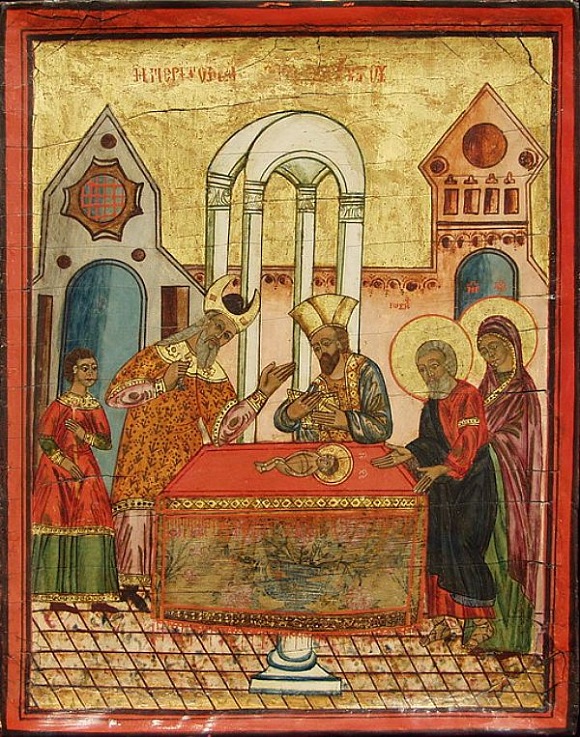Luke dedicates one sentence to the circumcision of Christ Jesus. “And when eight days were fulfilled, when he was circumcised, he was called Jesus, the name given by the angel before he was conceived in the womb” (Lk 2.21). Why would Theophilus need to know this? Maybe he doesn’t know that male Jewish children were circumcised. Luke may just want to throw in the information for him. I doubt it. Though not given much shrift, the circumcision of Jesus is integral to the story of the gospel and Theolphilus’s catechetical instruction.
The story of circumcision begins where all human stories begin: in the Garden. No, circumcision wasn’t present in the Garden in the way that God prescribes it in Genesis 17 with Abraham, but its necessity and anticipation were there. When Adam and Eve sinned, their flesh was corrupted. This corrupted flesh was a source of shame before one another and before God. They sought to cover the shame by adding a new layer of “skin,” fig leaves. They knew that they needed new flesh.
The covering they provided for themselves wasn’t adequate. Ultimately, they need new flesh. The only way to create this new flesh is through the ripping apart of the old flesh. Death must take place. God demonstrated this by ripping the flesh of an animal and giving Adam and Eve new skin. This provision was effective for the time, but it only anticipated what needed to be done by the promised seed of the woman (Gen 3.15). Somehow, through this seed, the old Adamic flesh would be ripped apart and a new skin, a new body would be given.
History moves on. God unfolds his plan for the seed through the years and a certain family that draws down to a man named Abram. Abram, “exalted father,” is childless and married to a barren woman, Sarai. God promises them a child early on but waits until both of their bodies are completely dead in terms of procreation (see Rom 4.13ff.). It is at this time that God commands the tearing of the flesh of Abram, now Abraham. Once Abraham’s flesh is torn, then, and only then, can new life be produced. Abraham’s and Sarah’s bodies are resurrected and are able to produce the seed, Isaac.
Like the skins in the Garden, circumcision was effective for the time, but it couldn’t bring about God’s full intention: a new body. In fact, circumcision further clarified the mission of death for the seed of the woman. That is, in order for new life to come, in order for corrupted flesh to be cleansed, the seed’s flesh needs to be torn. Only after this will resurrection occur and the needed new body be given.
For about two thousand years the children of Abraham through Isaac circumcised their male children, anticipating the time when the seed of Abraham would fulfill the mission of Israel, be ripped in half in death, and be resurrected with a new, uncorrupted flesh. Luke tells Theophilus that this time has come in the Person of Jesus.
Jesus takes up the mission of the seed of Abraham, embodying the story, promises, and purpose of Israel. What has been foreshadowed in the circumcision of every male in Israel will reach its fulfillment in Jesus’ death and consequent resurrection. Jesus’ old creation flesh is ripped at the cross so that uncorrupted flesh would be resurrected.
For any of us to be rid of our corrupted flesh received from Adam, our flesh too must be torn. We all need circumcision. Those of us united to Christ in his death and resurrection through baptism have been circumcised. Paul tells us in Colossians 2.11-12 that, “In him also you were circumcised with a circumcision made without hands, by putting off the body of the flesh, by the circumcision of Christ, having been buried with him in baptism, in which you were also raised with him through faith in the powerful working of God, who raised him from the dead.” Through our union with Jesus’ circumcision—his death—our corrupted flesh has been torn and we receive a new body in Christ, a truth that will be fully realized in our bodily resurrection from the dead.
We look forward to that bodily resurrection, but we have new flesh even now. Our sins are forgiven. We are resurrected. Sin does not have dominion over us (see Romans 6). Therefore, do not allow sin to have dominion over you.
















